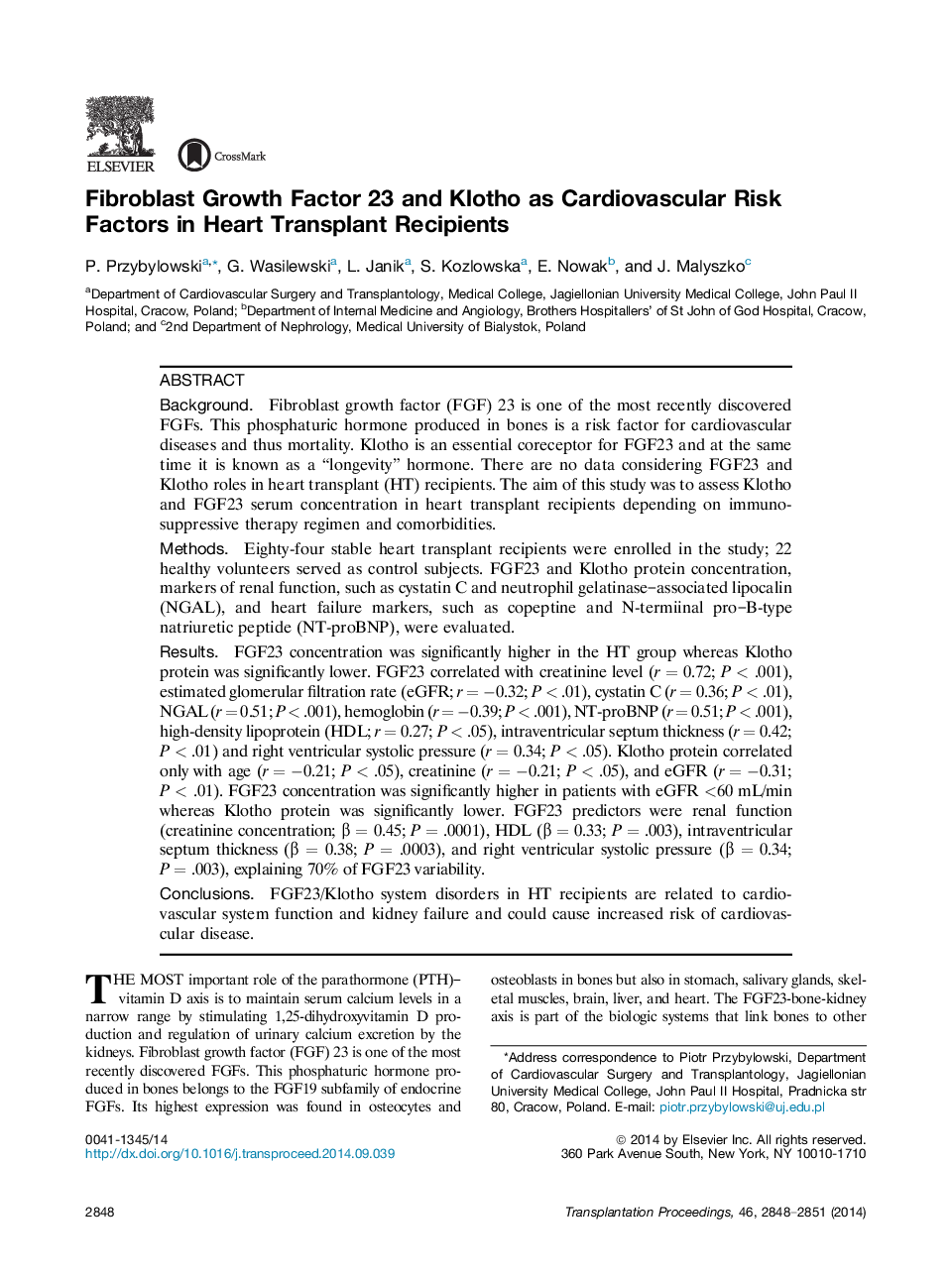| Article ID | Journal | Published Year | Pages | File Type |
|---|---|---|---|---|
| 4258001 | Transplantation Proceedings | 2014 | 4 Pages |
BackgroundFibroblast growth factor (FGF) 23 is one of the most recently discovered FGFs. This phosphaturic hormone produced in bones is a risk factor for cardiovascular diseases and thus mortality. Klotho is an essential coreceptor for FGF23 and at the same time it is known as a “longevity” hormone. There are no data considering FGF23 and Klotho roles in heart transplant (HT) recipients. The aim of this study was to assess Klotho and FGF23 serum concentration in heart transplant recipients depending on immunosuppressive therapy regimen and comorbidities.MethodsEighty-four stable heart transplant recipients were enrolled in the study; 22 healthy volunteers served as control subjects. FGF23 and Klotho protein concentration, markers of renal function, such as cystatin C and neutrophil gelatinase–associated lipocalin (NGAL), and heart failure markers, such as copeptine and N-termiinal pro–B-type natriuretic peptide (NT-proBNP), were evaluated.ResultsFGF23 concentration was significantly higher in the HT group whereas Klotho protein was significantly lower. FGF23 correlated with creatinine level (r = 0.72; P < .001), estimated glomerular filtration rate (eGFR; r = −0.32; P < .01), cystatin C (r = 0.36; P < .01), NGAL (r = 0.51; P < .001), hemoglobin (r = −0.39; P < .001), NT-proBNP (r = 0.51; P < .001), high-density lipoprotein (HDL; r = 0.27; P < .05), intraventricular septum thickness (r = 0.42; P < .01) and right ventricular systolic pressure (r = 0.34; P < .05). Klotho protein correlated only with age (r = −0.21; P < .05), creatinine (r = −0.21; P < .05), and eGFR (r = −0.31; P < .01). FGF23 concentration was significantly higher in patients with eGFR <60 mL/min whereas Klotho protein was significantly lower. FGF23 predictors were renal function (creatinine concentration; β = 0.45; P = .0001), HDL (β = 0.33; P = .003), intraventricular septum thickness (β = 0.38; P = .0003), and right ventricular systolic pressure (β = 0.34; P = .003), explaining 70% of FGF23 variability.ConclusionsFGF23/Klotho system disorders in HT recipients are related to cardiovascular system function and kidney failure and could cause increased risk of cardiovascular disease.
